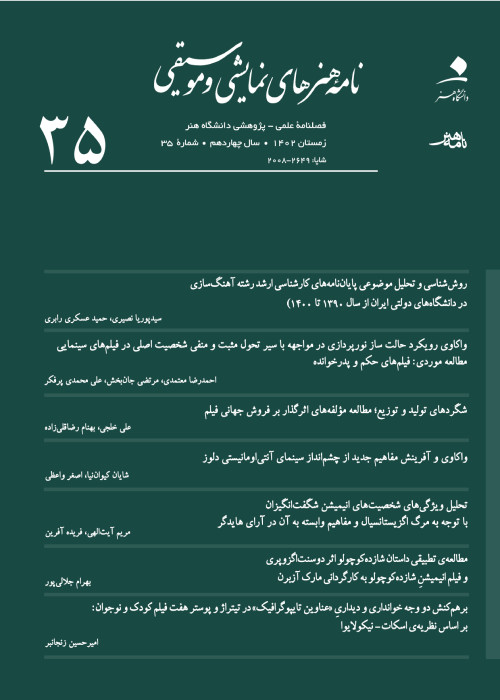A Comparative Analysis between Two Translations of Shakespeare's Othello with Cultural Semiotics Point of View
Author(s):
Abstract:
Abstract This article is a comparative analysis between Shakespeare’s Othello and two persian translations of this drama by Abol Ghasem Khan Naseralmolk and M.A. Beh’aazin. The current study tries to consider problems of dramatic translation of the text. The main objective of this article is to consider the necessity of cultural semiotics in translating of dramatic texts. Although in these texts, it is impossible to separate text from performance, since theatre consists of the dialectical relationship between both of them, and also dramatic texts are not complete without performance. But the authors have tried to look at dramatic texts as independent elements. They mainly tend to find some answers to the following questions: In addition to dominance to the source language and target language, is it necessary that the translator dominate cultural semiotics? Should translator compare signs- and especially the cultural ones- meaning in the source and the target languages? Culture and cultural code have an essential role in sign decoding especially in translation process. Culture is made of various kinds of discourses as artistic, literal, politic, religious, etc. Therefore literary discourse is just one part of culture in each society. In translation, especially in literally ones, cultural code should be considered as important as metaphoric and metonymic relations and indeterminacy of signs and semantic deviation. The signs are different in each language. They are encoded by language readers and context. In literary translation, poetic sense should be conveyed as well as intended message and sign meaning. That is why some of the signs are transformed without any change, some transform according to the cultural code of target language and some disappear. Some times in this process, translator adds signs to the text. Because of different meanings of the signs, it is impossible to attain to the author’s mind. In the process of translation, the cultural differences cause to not relate with text. Besides each writer has his/her “personal accent”. It is a product of personal ideology, the period and climate, experiences and continents, cultures, observations, religions, contemporary politics and other factors. In translation the” Personal accent” of the writer is as important as the translator’s one. It is clear that Shakespeare’s “personal accent” in not exactly the same as M.A. Beh’aazin or Abol Ghasem Khan Naseralmolk’s accent. In other words Shakespeare’s cultural lung had been filled with different kind of oxygen. Such factors act as finger prints that everyone has his/her own special one. Whilst it seems that the source text and target text are equal and tantamount, translating act is a process of renovation and recreation of text. The processes of translation involved in making another culture comprehensible. There are direct relations between Languages and literary texts and culture. If there is an interconnection between language and the thought, and culture and what the writers write, understanding the culture is very essential factor. Translation of dramatic texts is formed in two steps. First the task of translator is to translate text to the target language and then the director, again, translates the text into a specific language which belongs to the stage. In this process, culture and cultural semiotics have important roles
Keywords:
Language:
Persian
Published:
Journal of dramatic Arts and Music, Volume:2 Issue: 4, 2012
Pages:
23 to 36
magiran.com/p1227720
دانلود و مطالعه متن این مقاله با یکی از روشهای زیر امکان پذیر است:
اشتراک شخصی
با عضویت و پرداخت آنلاین حق اشتراک یکساله به مبلغ 1,390,000ريال میتوانید 70 عنوان مطلب دانلود کنید!
اشتراک سازمانی
به کتابخانه دانشگاه یا محل کار خود پیشنهاد کنید تا اشتراک سازمانی این پایگاه را برای دسترسی نامحدود همه کاربران به متن مطالب تهیه نمایند!
توجه!
- حق عضویت دریافتی صرف حمایت از نشریات عضو و نگهداری، تکمیل و توسعه مگیران میشود.
- پرداخت حق اشتراک و دانلود مقالات اجازه بازنشر آن در سایر رسانههای چاپی و دیجیتال را به کاربر نمیدهد.
In order to view content subscription is required
Personal subscription
Subscribe magiran.com for 70 € euros via PayPal and download 70 articles during a year.
Organization subscription
Please contact us to subscribe your university or library for unlimited access!


